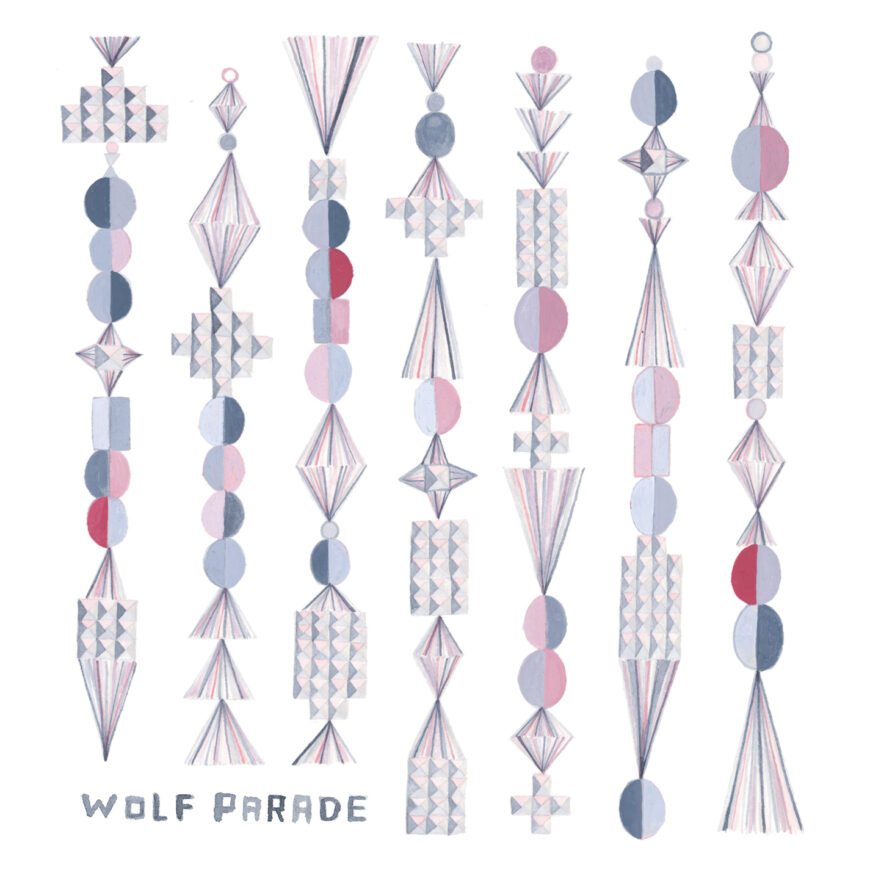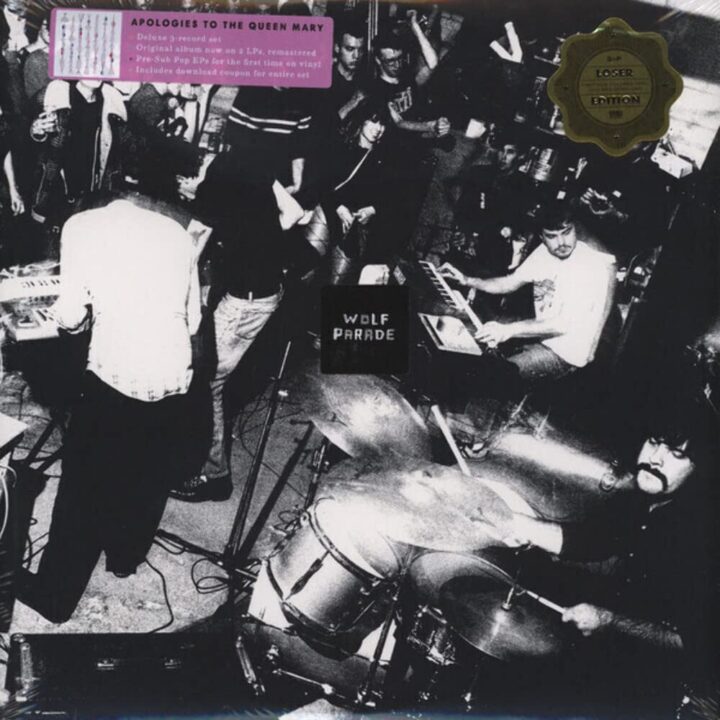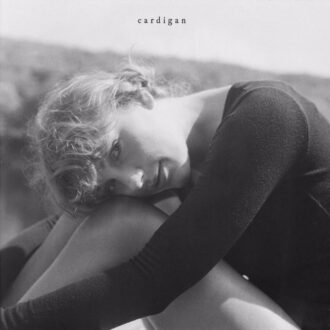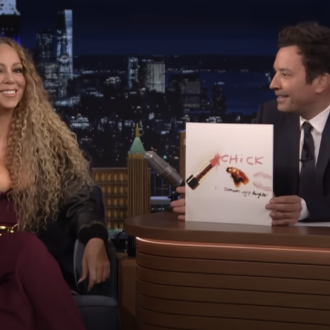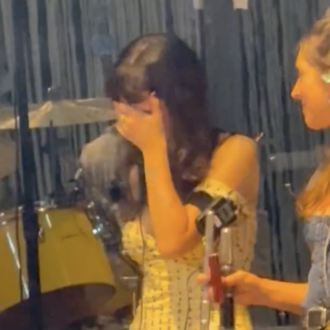Stereogum reader, I am going to assume you are constantly hoping, wishing, praying for hypotheticals that allow you to take comment section chatter into the real world. And so let’s start: What’s your platonic ideal of an indie rock song? Not necessarily the best indie rock song or even your favorite. But let’s suppose you’re shooting the shit at work, the conversation turns to “what kind of music do you like,” and someone says “indie rock.” To be specific, a conceptualization of indie rock that clashes with your own. (Pulling from my own real life experience, they probably mean Djo or Still Woozy or Glass Animals.) When you say you’re into indie rock, what’s a song that explains what you mean by that?
For me, the sound is easy enough to identify. It should carry a tune like the proverbial Stone of Triumph, both a burden and a god-given, mystical honor. Scrappy, but not abrasive; Sub Pop is a perfect indie rock label name, right? Some non-traditional instrumentation is cool and cooler when it sounds like they’re playing them for the first time. Give me “propulsive,” but there needs to be some unseen pushback that ensures they never reach exit velocity.
And that gets into what truly matters, an emotional undercurrent that can only be described as “unsatisfied.” Not the absence of satisfaction that can be cured by girlie action or really anything specific, but that place of getting close enough to see just how painfully far away you really are. “Unsatisfied” as a resting state but not a permanent one, subject to fleeting joys and disappointments, but always waiting for something that’ll never arrive.
That’s the chorus of my personal choice, Wolf Parade’s “Shine A Light.” By no means is it the quintessential indie rock song from a historical perspective, just one that creates a four-minute template of “shit I like.” The title alone puts it in a discussion with the Rolling Stones, Spiritualized and, most importantly, Constantines – at least one Canadian band’s platonic ideal of what this music is supposed to provide. The perpetually sleeveless Dan Boeckner grits his teeth through boring hours in the office tower, like a Born In The USA narrator thrust two decades into the future at an email job, stripped of the dignity of at least producing something useful in a factory. Still, after every sleepless night, there’s the possibility of just letting that bus pass by and finding his own backstreets or Thunder Road to prove their vitality.
It’s the cubicle as a crossroads, where “some folks float, some are buried alive,” “some ghosts sink, some get called to the light.” “I thought I would be more than this,” “will you be the fire or the wind,” “it’s still us against them,” “waiting for a generation’s bonfire to begin.” In the 20 years since I first heard “Shine A Light,” I’ve had jobs that make me feel truly alive and ones that made me wish I was dead, and not once did “Shine A Light” ring false.
Yet, for far more people, “Shine A Light” is mere prelude to “I’ll Believe In Anything,” which has been interpreted as not just the platonic ideal of an indie rock song, but a theme song for indie rock as a social movement during its cultural peak. Indeed, this is the track Chris DeVille picked for the Chapter 4 soundtrack in his 21st century indie rock exegesis Such Great Heights. Other Wolf Parade diehards might choose “This Heart’s On Fire,” a song that essentially invented Japandroids. Or “You Are A Runner And I Am My Father’s Son.” These two songs bookend Wolf Parade’s debut, Apologies To The Queen Mary. Released 20 years ago this Saturday, it might not have been the best indie rock album of 2005 or even my favorite, but it’s absolutely the most 2005 album, the first one I think of when I’m lost in reverie over my platonic ideal for an indie rock year.
That is not a statement I make lightly. If attachment is indeed the root of suffering, my path towards nirvana is forgetting about everything that populated my 4th-gen iPod. Twin Cinema, Strange Geometry, Plans, Late Registration, Silent Alarm Remixed, Takk…, Cripple Crow, Tender Buttons, You Could Have It So Much Better, Witching Hour, Broken Social Scene, Extraordinary Machine, Z, The Runners Four, The Campfire Headphase, Feels, Tanglewood Numbers — this was all within the span of less than two months during the fall of 2005. I wouldn’t blame Stereogum if the site just tabled new music coverage and dedicated itself to anniversary pieces for the rest of October.
And yet, the thing that impresses me the most about Apologies To The Queen Mary is that it’s not really all that special. “Unfocused, but plenty loveable,” Rolling Stone claimed in a paragraph-long, 3.5-star review. Entertainment Weekly: “very, very good without being spectacular,” and also, a B+. Four out of five stars from All Music Guide, noting that Boeckner and Spencer Krug both have a “wry yelp that seemed so quirkily marketable in the mid-2000s,” which is not at all true about Boeckner at least.
Even Pitchfork acknowledged that Wolf Parade were a recombinant indie rock band and not a progressive one: the Pixies and Modest Mouse at their most prickly, fused with classic rock icons (specifically, Boss, Bowie, and Byrne) that pushed indie rock towards populism, if not pop, in 2005. They surmised, “On paper, this all could sound average,” and that it “isn’t going to change the direction of modern music.” They also gave it a 9.2, a score so rare these days that we need to publish an accompanying thinkpiece whenever it comes to pass. For better or worse – and really, there’s no pretending where I stand – that’s the kind of power a straight-up indie rock record could have back then.
So yes, that very specific kind of 2005 hype. Krug was in an early incarnation of Frog Eyes, a confounding prog-rock project that he eventually rejoined and is not to be confused with Sunset Rubdown or Swan Lake, his other confounding prog-rock projects. In 2001, he left British Columbia to move to Montreal and linked up with Boeckner. As far as backstory, that’s really about it. But lest you forget, this era was one of Canadian infatuation – Broken Social Scene! The New Pornographers! The Stills (I promise)!
Let’s not forget Hot Hot Heat, whose Dante Decaro jumped ship to join Wolf Parade in the summer of 2005. And Wolf Parade had the most important connection of the time: they opened for Arcade Fire a year before Funeral and recorded their first EP at the band’s practice space. Two more followed in 2004 and 2005, and combined, those three EPs previewed eight of the 12 songs that would eventually end up on Apologies To The Queen Mary. By the time the finished product arrived in stories, it was a veritable Greatest Hits.
As an added bonus, Apologies had the cosign of Isaac Brock, who produced all but three tracks. Wolf Parade didn’t downplay the influence of either of their A-list benefactors. On “Dear Sons And Daughters Of Holy Ghosts,” Krug revisits the image of Cowboy Dan trying to lick shots at God. “I’ll Believe In Anything” similarly touches on “Neighborhood #4 (Power Out),” holding the power in the hearts of man in a single wire. All of which inspired Pitchfork to call them “the most begrudged” indie rock band of 2005, which is saying a lot in a year that included the true debuts of M.I.A. and LCD Soundsystem and the whole Clap Your Hands Say Yeah thing.
For all of the established talent and instant-classic tunes, Wolf Parade never quite fit into the two molds of their Canadian peers, which were either supergroups or airtight bands with an insatiable ambition. Krug and Boeckner were simply talented writers who happened to release their most beloved songs while in the same band; had things shaken out slightly differently, any of them could have ended up in the hands of Sunset Rubdown or Handsome Furs (indeed, “I’ll Believe In Anything” originally was a Sunset Rubdown song).
It’s tempting to split Apologies into “Krug songs” and “Boeckner songs,” especially as their vocals and lyrical themes and main instruments (synth and guitar, respectively) make for an easy “glam vs. grit” dichotomy. When Boeckner sings of ghosts, they’re most likely regrets. For Krug, they’re actual apparitions. Each gets a drawn-out slow jam; Boeckner’s “Same Ghost Every Night” is a barstool power ballad, while on “Dinner Bells,” Krug sounds like he’s witnessing the end of time from a makeshift spacecraft. Yet, Krug and Boeckner don’t strike me as rivals or competitors or ride-or-dies with an ironclad artistic bond. They don’t complete so much as complement each other in the style of my favorite rap duos – there’s the street guy and the space guy tackling the same subjects from slightly different angles, sometimes within the same song (their non-Wolf Parade output is basically one long Speakerboxxx/The Love Below).
Even beyond their tendency to share vocal duties (the give and go on “We Built Another World” is particularly priceless), Brock’s unorthodox production creates stress and friction where it might not otherwise exist; every element, from the vocals to the fizzling synths to Arlen Thompson’s “Meg White with a disco hi-hat” drums, sounds like they’re fighting over one microphone. Audio engineers will probably be driven to madness by the hyper-compression, a far cry from the spacious, layered sound of the two most recent Modest Mouse records.
From the opening, savage kick drum on “You Are A Runner And I Am My Father’s Son,” Apologies is almost constantly clipping in the red. “Fancy Claps,” one of the few non-anthems, is a hot rod trying to rev itself out of a mudpit. Just about every song ends in a collapsed heap, and the band sometimes doesn’t even give itself a single second before trudging along all over again. Compare “Modern World” or “Shine A Light” to 2010’s “Yulia,” the closest they’ve come to an anthem worthy of Apologies; the latter is satisfying, even comforting, the work of professionals. The former have been honed over the span of three years while still sounding like they had to be knocked out in an hour.
It’s impossible not to show one’s age during a 20th anniversary piece, more so when I hear Apologies To The Queen Mary and think, “they don’t make ‘em like this anymore.” Readers under the age of 35 might be vaguely aware of Wolf Parade, and plenty of contemporary bands may have loved this album as much as we do. Or, they might just fall into a Black Crystal Wolf Kids blog rock memory hole.
But unlike some of the other records we’ve paid tribute to this year – Alligator, All We Know Is Falling, The Woods, LCD Soundsystem, Robyn, Separation Sunday, Silent Alarm, just to name a few – Apologies does not have an easily identifiable fingerprint on 2025 indie rock. Hell, in Such Great Heights, they only get a half a bar, listed amongst a bunch of “hard-hitting bands that earned rave reviews and built up devoted audiences,” which was definitely true of Spoon, the Hold Steady, and Deerhunter, less so for Vivian Girls and Titus Andronicus (sorry Chris). Wolf Parade have existed somewhere in between, sporadically releasing music over the past two decades that gets politely praised all while Spencer Krug and Boeckner have built up sizable catalogs in Sunset Rubdown, Operators, and Handsome Furs that seem to be more beloved than At Mount Zoomer or Thin Mind.
Clear away the nostalgia — of being 25, of being drunk on the possibilities of blogging (and just plain drunk) — and what strikes me the most about Apologies To The Queen Mary is that it arrived preemptively bummed out. This is not a matter of speculation – “I’m not in love with the modern world,” Boeckner grouses. Five minutes later, “I had a bad, bad time tonight.” And in the grand finale, “Sometimes we rock and roll/ I’d rather stay at home and build a life.” Yet, by the end of each song, they’re hooting and hollering in the background, summoning up the will to dance away the pain before collapsing in a heap and summoning the will to do the same thing again. That’s indie rock, baby.
